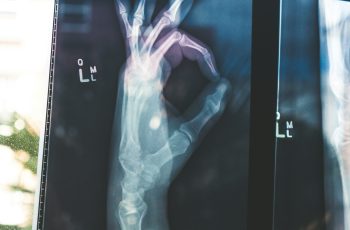Ad Blocker Detected
Our website is made possible by displaying online advertisements to our visitors. Please consider supporting us by disabling your ad blocker.
If you’re looking to boost your immune system and support overall wellness, zinc supplements may be the answer you’ve been searching for. Providing an essential mineral that your body needs to function properly, zinc supplements can help with everything from wound healing to fighting off common colds. In this article, we’ll explore the benefits of zinc supplements and how they can improve your health. Whether you’re new to the world of supplements or simply looking to enhance your immune system, get ready to discover the power of zinc!

This image is property of images.unsplash.com.
What are zinc supplements?
Zinc supplements are dietary supplements that contain zinc, a mineral that plays a crucial role in various bodily functions. These supplements are designed to provide an additional source of zinc to individuals who may not be getting enough through their regular diet. Zinc is an essential nutrient that is required for the proper functioning of numerous enzymes and proteins in the body. It is involved in various physiological processes, including immune function, growth and development, neurological function, and reproductive health.
Defining zinc supplements
Zinc supplements come in various forms, including tablets, capsules, lozenges, and liquid solutions. These supplements typically contain different types of zinc compounds, such as zinc sulfate, zinc gluconate, zinc acetate, and zinc citrate. Each form of zinc compound has its own level of bioavailability, which refers to the extent to which the zinc is absorbed and utilized by the body. The bioavailability of zinc supplements can vary depending on factors such as the form of zinc compound used and the presence of other substances in the supplement.

This image is property of images.unsplash.com.
Forms of zinc supplements
Zinc supplements are available in different forms to cater to individual preferences and needs. Some common forms of zinc supplements include:
-
Zinc gluconate: This form of zinc supplement is commonly found in tablets and capsules. It is known for its high bioavailability and is often used to support immune function and promote wound healing.
-
Zinc sulfate: Zinc sulfate is another commonly used form of zinc supplement. It is often available in tablet or capsule form and is widely used for its effectiveness in treating zinc deficiencies.
-
Zinc acetate: Zinc acetate is often found in lozenges and is commonly used to alleviate symptoms of the common cold. It is known for its ability to shorten the duration and severity of cold symptoms.
-
Zinc citrate: This form of zinc supplement is easily absorbed by the body and is often found in liquid solutions or capsules. It is commonly used to support overall health and well-being.
Importance of zinc in the body
Zinc is an essential mineral that is required for numerous bodily functions. It is involved in over 300 enzymatic reactions in the body and plays a crucial role in protein synthesis, DNA synthesis, and cell division. Zinc is also essential for maintaining a healthy immune system, as it is involved in the development and function of immune cells. Additionally, zinc is required for proper growth and development, as it is involved in DNA replication and cell division. It is also important for neurological function, as it plays a role in neurotransmitter regulation and synaptic plasticity. Furthermore, zinc is necessary for reproductive health, as it is involved in sperm production and hormone regulation. Lastly, zinc is important for wound healing, as it plays a role in collagen synthesis and the formation of new blood vessels.

This image is property of images.unsplash.com.
Benefits of zinc supplements
Boosting the immune system
Zinc supplements are widely recognized for their ability to support immune health. Adequate levels of zinc are essential for the optimal functioning of immune cells, including T-cells, B-cells, and natural killer cells. Zinc plays a crucial role in the development and activation of these immune cells, helping the body fight off infections and diseases. Studies have shown that zinc supplements can help boost immune function, reduce the risk of infections, and enhance the body’s ability to fight off pathogens.
Supporting growth and development
Zinc is crucial for proper growth and development, especially during childhood and adolescence. It is required for DNA synthesis and cell division, which are essential for the growth and repair of tissues. Adequate levels of zinc are particularly important for children and teenagers as they undergo rapid growth and development. Zinc supplements can help ensure that individuals are getting enough zinc to support healthy growth and development.
Improving neurological function
Zinc is involved in various aspects of neurological function, including neurotransmitter regulation and synaptic plasticity. Zinc plays a role in the release and regulation of neurotransmitters, which are chemical messengers that transmit signals between nerve cells. Zinc is also important for synaptic plasticity, which is the ability of the brain to change and adapt in response to stimuli. Studies have shown that zinc supplements can improve cognitive function, memory, and attention span.
Enhancing reproductive health
Zinc is closely linked to reproductive health in both males and females. In males, zinc is required for sperm production and testosterone synthesis. Low levels of zinc have been associated with decreased sperm count and motility, as well as hormonal imbalances. In females, zinc is involved in hormone regulation and the development of healthy eggs. Studies have shown that zinc supplements can improve sperm quality, increase fertility, and regulate menstrual cycles.
Promoting wound healing
Zinc plays a crucial role in the process of wound healing. It is involved in the synthesis of collagen, a protein that forms the structural framework of connective tissues. Zinc is also necessary for the formation of new blood vessels, which are essential for delivering oxygen and nutrients to the wound site. Studies have shown that zinc supplements can accelerate the healing of wounds, reduce inflammation, and minimize the risk of infection.
Preventing age-related macular degeneration
Age-related macular degeneration (AMD) is a degenerative eye disease that affects the central vision. Zinc has been shown to play a role in protecting the retina and reducing the risk of AMD. Studies have found that individuals with higher levels of dietary zinc have a lower risk of developing AMD. Zinc supplements, along with other antioxidants, may help slow down the progression of AMD and preserve vision in individuals at risk.
Managing symptoms of acne
Zinc has anti-inflammatory and antibacterial properties that can help manage the symptoms of acne. It reduces inflammation and redness associated with acne and helps regulate sebum production, which can contribute to the development of acne. Zinc supplements, particularly zinc gluconate and zinc acetate, have been found to be effective in reducing the severity of acne and improving overall skin health.
Reducing the duration and severity of cold symptoms
Zinc supplements, particularly zinc lozenges, have been found to be effective in reducing the duration and severity of cold symptoms. Zinc has antiviral properties that can help inhibit the replication of cold viruses in the throat and nasal passages. It can also help relieve symptoms such as sore throat, cough, and nasal congestion. However, it is important to note that zinc lozenges should be taken at the first sign of a cold to be most effective.
Recommended daily intake of zinc
Zinc intake guidelines
The recommended daily intake of zinc varies depending on age, sex, and life stage. The Dietary Reference Intakes (DRI) for zinc are as follows:
- Infants (0-6 months): 2 mg
- Infants (7-12 months): 3 mg
- Children (1-3 years): 3 mg
- Children (4-8 years): 5 mg
- Children (9-13 years): 8 mg
- Adolescents (14-18 years): Boys – 11 mg, Girls – 9 mg
- Adults (19 years and older): Men – 11 mg, Women – 8 mg
- Pregnant women: 11-12 mg
- Breastfeeding women: 12-13 mg
It is important to note that these are general guidelines and individual needs may vary. Pregnant and breastfeeding women, as well as individuals with certain health conditions, may require higher levels of zinc. It is always best to consult with a healthcare professional to determine the appropriate daily intake of zinc for your specific needs.
Factors affecting zinc requirements
Several factors can influence an individual’s zinc requirements. These include age, sex, life stage, dietary intake, and health status. Infants, children, and adolescents have higher zinc needs due to their growth and development. Pregnant and breastfeeding women also have increased zinc requirements to support the growth and development of the fetus or infant. Individuals with certain health conditions, such as gastrointestinal disorders or malabsorption issues, may have difficulty absorbing zinc from their diet and may require higher levels of supplementation.
Zinc deficiency and supplementation
Zinc deficiency can occur when the body does not get enough zinc to meet its needs. Common symptoms of zinc deficiency include impaired immune function, delayed growth and development, hair loss, skin rashes, and poor wound healing. Individuals at risk of zinc deficiency include vegetarians, vegans, individuals with gastrointestinal disorders, and those with a limited intake of zinc-rich foods.
Zinc supplementation can be an effective way to address zinc deficiencies. It is important to choose a high-quality zinc supplement that provides an adequate dosage and is easily absorbed by the body. Supplements should be taken in consultation with a healthcare professional, who can help determine the appropriate dosage and duration of supplementation.

Potential side effects and risks
Possible side effects
While zinc supplements are generally safe for most individuals when taken as directed, they can cause certain side effects. Common side effects of zinc supplementation include nausea, vomiting, diarrhea, and stomach cramps. These side effects are typically mild and can be minimized by taking the supplement with food. Zinc supplements should be discontinued if severe or persistent side effects occur.
Interactions with medications
Zinc supplements may interact with certain medications, including antibiotics and diuretics. Zinc can reduce the absorption and effectiveness of antibiotics, so it is recommended to take these medications at least 2 hours before or after consuming zinc supplements. Diuretics, on the other hand, can increase the excretion of zinc from the body. Individuals taking diuretics should consult with their healthcare professional to determine the appropriate dosage and timing of zinc supplementation.
Risks of excessive zinc intake
While zinc is an essential nutrient, taking excessive amounts can be harmful. High levels of zinc can interfere with the absorption of other minerals, such as copper and iron, leading to deficiencies. Prolonged or excessive zinc intake can also suppress the immune system and impair copper metabolism, leading to copper deficiency. It is important to follow the recommended daily dosage and consult with a healthcare professional before increasing zinc intake.
Management of zinc toxicity
Zinc toxicity is rare but can occur with excessive zinc intake. Symptoms of zinc toxicity include nausea, vomiting, stomach cramps, headache, and dizziness. If zinc toxicity is suspected, medical attention should be sought immediately. Treatment may include supportive care, such as removing the source of zinc and providing fluid and electrolyte replacement. It is important to remember that zinc toxicity is rare and can be avoided by following the recommended dosage guidelines.
Food sources of zinc
Animal-based sources
Zinc is naturally found in a variety of foods, with animal-based sources generally containing higher levels of zinc compared to plant-based sources. Some examples of animal-based sources of zinc include:
-
Oysters: Oysters are one of the richest sources of zinc, with a 3-ounce serving containing over 74 mg of zinc.
-
Beef: Lean cuts of beef, such as sirloin and tenderloin, are good sources of zinc, providing around 7-10 mg per 3-ounce serving.
-
Chicken: Chicken, particularly dark meat, is a good source of zinc, providing approximately 2-3 mg per 3-ounce serving.
-
Fish: Certain types of fish, such as salmon, sardines, and trout, contain moderate amounts of zinc, ranging from 1-2.5 mg per 3-ounce serving.
-
Dairy products: Milk, cheese, and yogurt are all good sources of zinc, with varying amounts depending on the specific product.
Plant-based sources
While plant-based sources of zinc generally contain lower levels of zinc compared to animal-based sources, they can still contribute to overall intake. Some examples of plant-based sources of zinc include:
-
Legumes: Chickpeas, lentils, and black beans are all good sources of zinc, providing approximately 2-3 mg per 1 cup serving.
-
Nuts and seeds: Pumpkin seeds, cashews, and almonds are all rich in zinc, with around 1-3 mg per 1-ounce serving.
-
Whole grains: Quinoa, brown rice, and wheat germ are all relatively good sources of zinc, containing approximately 1-2 mg per 1 cup serving.
-
Fortified foods: Some breakfast cereals, bread, and other grain-based products are fortified with zinc to increase their nutritional content.
Zinc bioavailability from different foods
It is important to note that the bioavailability of zinc can vary depending on the food source. Animal-based sources of zinc generally have higher bioavailability compared to plant-based sources. This is because animal-based sources contain zinc in a form that is more easily absorbed by the body. Factors such as the presence of phytates, fiber, and other substances can inhibit the absorption of zinc from plant-based sources. Pairing plant-based sources of zinc with foods rich in vitamin C can enhance the absorption of zinc.
Choosing the right zinc supplement
Different forms of zinc supplements
When choosing a zinc supplement, it is important to consider the different forms available. Each form of zinc supplement has its own level of bioavailability, which can impact how well the zinc is absorbed and utilized by the body. Some common forms of zinc supplements include zinc gluconate, zinc sulfate, zinc acetate, and zinc citrate. It is also important to consider the dosage and form of supplement that is most convenient for you, such as tablets, capsules, or liquid solutions.
Considerations for absorption and bioavailability
The bioavailability of zinc supplements can vary depending on factors such as the form of zinc compound used and the presence of other substances in the supplement. It is important to choose a high-quality zinc supplement that is easily absorbed by the body. Look for supplements that have been tested for purity and quality, and consider consulting with a healthcare professional to determine the most suitable form of zinc supplement for your individual needs.
Recommended daily dosage
The recommended daily dosage of zinc supplements can vary depending on age, sex, and individual needs. It is important to follow the guidelines provided by healthcare professionals or the product label. Taking more than the recommended dosage of zinc supplements does not necessarily provide additional benefits and can increase the risk of side effects and toxicity. It is always best to consult with a healthcare professional to determine the appropriate dosage of zinc supplement for your specific needs.
Who may benefit from zinc supplements?
Individuals with zinc deficiency
Individuals with zinc deficiency can benefit from zinc supplements. Common risk factors for zinc deficiency include vegetarian or vegan diets, gastrointestinal disorders, and limited intake of zinc-rich foods. Zinc supplements can help address the deficiency and restore optimal levels of zinc in the body. It is important to consult with a healthcare professional to determine the appropriate dosage and duration of supplementation.
Vegetarians and vegans
Vegetarian and vegan diets often lack sufficient amounts of zinc, as the mineral is predominantly found in animal-based foods. Zinc supplements can help meet the zinc needs of individuals following these dietary choices. It is important for vegetarians and vegans to be mindful of their zinc intake and consider incorporating zinc-rich plant-based foods and supplements into their diet.
Pregnant and breastfeeding women
Pregnant and breastfeeding women have increased zinc requirements to support the growth and development of the fetus or infant. Zinc supplements can help ensure that pregnant and breastfeeding women are receiving adequate levels of zinc for their own health and the health of their baby. It is important for pregnant and breastfeeding women to consult with their healthcare professional to determine the appropriate dosage of zinc supplement.
Elderly individuals
As individuals age, their ability to absorb and utilize zinc from their diet may decline. This can put elderly individuals at risk of zinc deficiency. Zinc supplements can help support their overall health and well-being. It is important for elderly individuals to speak with their healthcare professional about their zinc needs and consider incorporating zinc-rich foods and supplements into their diet.
Athletes and physically active individuals
Athletes and physically active individuals have increased zinc requirements due to the demands of exercise on the body. Zinc plays a crucial role in muscle repair, immune function, and hormone regulation, all of which are important for optimal athletic performance. Zinc supplements can help athletes and physically active individuals meet their increased zinc needs and support their training and recovery processes.
Zinc supplements and specific health conditions
Zinc supplements for the common cold
Zinc supplements, particularly zinc lozenges, have been widely studied for their potential to reduce the duration and severity of cold symptoms. Zinc has antiviral properties that can help inhibit the replication of cold viruses in the throat and nasal passages. Taking zinc lozenges at the first sign of a cold can help reduce symptoms such as sore throat, cough, and nasal congestion.
Zinc supplements for acne
Zinc is known for its anti-inflammatory and antibacterial properties, which can help manage the symptoms of acne. It reduces inflammation and regulates sebum production, which can contribute to the development of acne. Several studies have found that zinc supplements, particularly zinc gluconate and zinc acetate, can reduce the severity of acne and improve overall skin health.
Zinc supplements for age-related macular degeneration
Age-related macular degeneration (AMD) is a degenerative eye disease that affects the central vision. Zinc has been found to play a role in protecting the retina and reducing the risk of AMD. Studies have shown that individuals with higher levels of dietary zinc have a lower risk of developing AMD. Zinc supplements, along with other antioxidants, may help slow down the progression of AMD and preserve vision in individuals at risk.
Potential benefits for other health conditions
While further research is needed, zinc supplements have shown potential benefits for several other health conditions. These include diabetes, respiratory infections, cognitive decline, and wound healing. Zinc is involved in numerous physiological processes in the body, and its supplementation may have positive effects on overall health and well-being. However, it is important to note that more research is needed to establish the effectiveness of zinc supplements for these specific health conditions.
How to take zinc supplements
Best time to take zinc supplements
Zinc supplements can be taken at any time of the day, with or without food. However, it is generally recommended to take zinc supplements with food to minimize the risk of stomach upset. Taking zinc with a meal can also enhance the absorption of zinc by the body. If taking other supplements or medications, it is advisable to space out the consumption of zinc to avoid potential interactions.
Recommended dosage and duration
The recommended dosage of zinc supplements can vary depending on individual needs and health conditions. It is important to follow the guidelines provided by healthcare professionals or the product label. Zinc supplements are typically taken on a daily basis, and the duration of supplementation may depend on individual circumstances. It is advisable to consult with a healthcare professional to determine the appropriate dosage and duration of zinc supplementation.
Interactions with other supplements and medications
Zinc supplements may interact with certain supplements and medications, including antibiotics and diuretics. Zinc can reduce the absorption and effectiveness of antibiotics, so it is recommended to take these medications at least 2 hours before or after consuming zinc supplements. Diuretics can increase the excretion of zinc from the body, potentially leading to zinc deficiency. Individuals taking diuretics should consult with their healthcare professional to determine the appropriate dosage and timing of zinc supplementation.
Possible adverse effects
While zinc supplements are generally safe for most individuals when taken as directed, there can be adverse effects if taken in excessive amounts or for prolonged periods. Possible adverse effects of zinc supplementation include nausea, vomiting, diarrhea, and stomach cramps. If severe or persistent side effects occur, it is important to discontinue the use of the supplement and seek medical attention.
What are the Benefits of Zinc Supplements Compared to Omega-3 Food Supplements?
Zinc supplements offer a range of benefits for the body, including supporting immune function, promoting wound healing, and aiding in protein synthesis. While omega 3 food supplements are beneficial for heart health and brain function, zinc plays a crucial role in various physiological processes, making it a valuable addition to your health regimen.
Conclusion
In conclusion, zinc supplements are a popular dietary supplement that can provide various health benefits. Zinc plays a crucial role in numerous bodily functions, including immune function, growth and development, neurological function, and reproductive health. Zinc supplements can boost the immune system, support growth and development, improve neurological function, enhance reproductive health, promote wound healing, prevent age-related macular degeneration, manage symptoms of acne, and reduce the duration and severity of cold symptoms.
The recommended daily intake of zinc varies depending on age, sex, and life stage. Factors such as dietary intake, health status, and zinc deficiency can affect individual zinc requirements. It is important to choose a high-quality zinc supplement and follow the recommended daily dosage. While zinc supplements are generally safe, they can cause side effects and interact with certain medications. It is advisable to consult with a healthcare professional before starting zinc supplementation.
Zinc can be obtained from both animal-based and plant-based sources. Animal-based sources generally contain higher levels of bioavailable zinc compared to plant-based sources. It is important to incorporate a variety of zinc-rich foods into the diet to ensure adequate intake. Zinc supplements can be beneficial for individuals with zinc deficiency, vegetarians and vegans, pregnant and breastfeeding women, elderly individuals, and athletes and physically active individuals.
Zinc supplements have shown potential benefits for specific health conditions, including the common cold, acne, and age-related macular degeneration, among others. However, further research is needed to establish their effectiveness. When taking zinc supplements, it is important to consider the best time to take them, the recommended dosage and duration, potential interactions with other supplements and medications, and possible adverse effects.
In conclusion, zinc supplements can be a valuable addition to a healthy lifestyle, helping to support overall health and well-being. It is essential to consult with a healthcare professional to determine the individual needs and appropriate use of zinc supplements. Zinc supplementation should always be part of a comprehensive approach to maintaining good health, including a balanced diet, regular exercise, and a healthy lifestyle.


